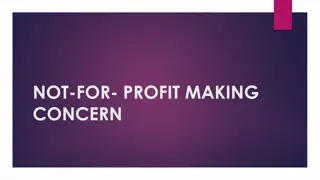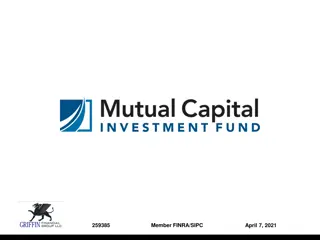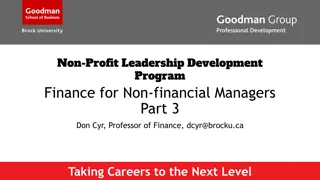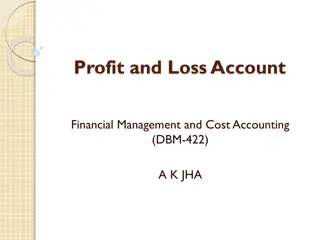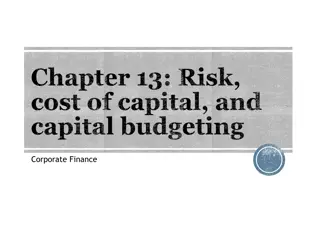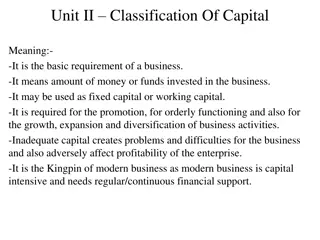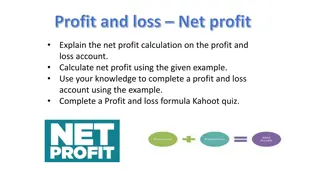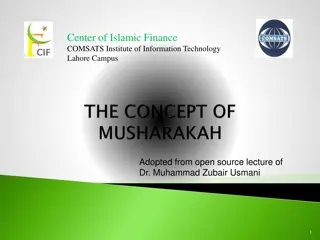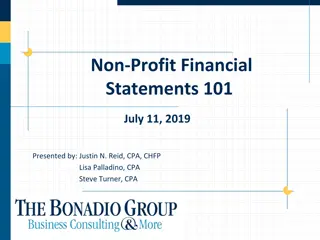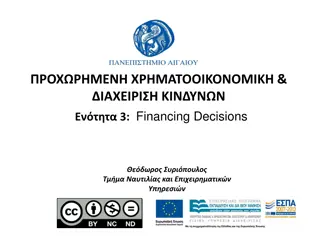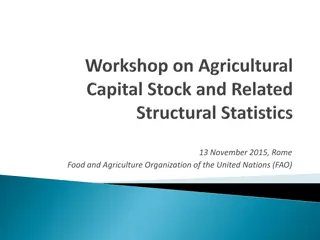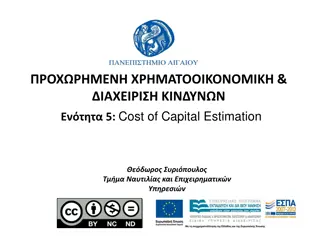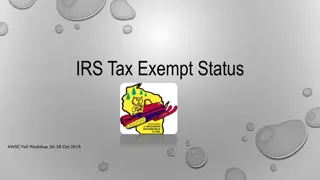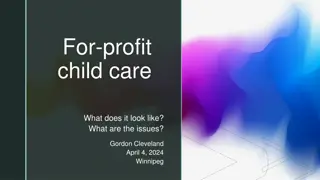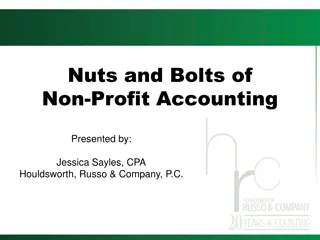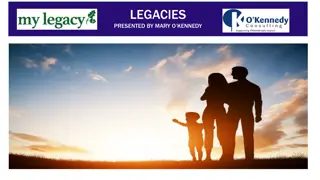Understanding State Capital Funding Process for Non-Profit Organizations
Explore how State Capital Funds function for non-profit organizations in collaboration with the City, ensuring compliance with State laws for funding release. Learn about the pivotal role of the City's Department of Finance and other important factors in obtaining and utilizing these funds for community projects.
Download Presentation

Please find below an Image/Link to download the presentation.
The content on the website is provided AS IS for your information and personal use only. It may not be sold, licensed, or shared on other websites without obtaining consent from the author. Download presentation by click this link. If you encounter any issues during the download, it is possible that the publisher has removed the file from their server.
E N D
Presentation Transcript
State Capital Funds Non-Profit Orgs
Contacts and Introduction Shawn Maden Strategic Program Mgr smaden@cabq.gov - 505-768-3616 Mark Motsko CIP Official mmotsko@cabq.gov 505-768-3832
The 30,000 overview Work with Department to create project Apply for City to be Fiscal Agent Enter Project online State Bill is passed State ensures project meets State Law before funds certified for release Org & City work with State to get funding certified State gives City funds City provides project requested by Org Org provides public services
Key Takeaways No project will receive any funding until the State Department of Finance or Board of Finance certifies that the project meets State law. This ALWAYS includes a Use Agreement/Contract with a City Department. They have over 2000 of these to process! Open communication with your sponsoring City Department at all stages will smooth many of the roadblocks, problems, and slowdowns common with Non-Profit Capital requests. Per State Law, your Organization cannot receive Capital funds. The City receives these funds and spends them on your behalf. This means the City uses its own purchasing processes. CIP Is the liaison between City and State regarding Capital funds. If CIP doesn t know about your project, it will take a very long time to obtain project funding. We have 1-200 of these to process and track!
Things to remember The City WANTS to help you acquire these funds quickly and get your project going. CIP is the liaison between the City and the State regarding Capital. If CIP doesn t know anything about your project, it will slow your project immensely. The rules we list are a non-exhaustive set of things that DFA/SBoF will ask you to ensure are met before they will certify funding. Your Organization does not purchase anything. The City is provided funding by the State, and the City makes the purchases.
For Example Organization KindFolks uses the City as their Fiscal Agent to request $450,000 in Capital Funds from the State to purchase land, acquire right of way, and to purchase, obtain, renovate, improve, and otherwise provide for a teen homeless shelter in ABQ in Bernalillo County. The bill passes. DFA/SBoF contacts the City for information to ensure State Law is met. KindFolks produces this information to the City, including a use agreement with the City s Dept. of Family and Community Services (FCS). This Agreement specifies that KindFolks will utilize a City owned facility to operate a teen homeless shelter, and will provide services to the City in lieu of rent, as provided in their Contract. DFA/SBoF agrees and certifies the project. This money is released to the City. FCS then coordinates with KindFolks, purchases a property and home, and pays City contracted companies for the necessary renovations using those funds. KindFolks then begins utilizing the facility to provide the services specified in their Use Agreement.
Notes Because the Department with which you have a use agreement makes all purchases, they must follow their own purchasing rules. The information on how the funding may be used is to inform you about what you may and may not ask the City to purchase when deciding on your project and writing your Scope. The City does not receive the leftover funds.
More Notes: You have 6 months from the sale of the bond to create a substantial binding obligation to a third party to expend 5% of the funding. 85% of the funds must be spent within 3 years of the sale of the bond, or all remaining funds revert back to the State. If SBoF/DFA has not released/certified your request by the end of the fiscal year 3 years later, the authorization for that project is automatically voided. All of these stipulations regarding timing are in the first 10 or so pages of the bill. Read Them!
2021-2022 Timeline - Applications Year-round: Begin coordinating with your associated City Department regarding your Organization s upcoming projects and capital requests. Oct 7th Capital Outlay Project Requests open for submission. Dec 30th2021 5 p.m. City s Deadline for Fiscal Agent Applications to smaden@cabq.gov Jan 13th2022 3 p.m. Deadline for Online Capital Outlay Request entry.
2021-2022 Timeline Legislation Feb 17th Session Ends Mar 9th Deadline for Governor action may Line Item Veto Questionnaires and follow-up by DFA/SBoF Bond Sales Typically June and December Sponsors and Legislators have a different set of Deadlines than we do!
Main Rules The Non-Profit Organization (NPO) must have an active Use Agreement/Contract with the City of Albuquerque before the project will be placed in the bond sale. Any and all items procured with these funds belong to the City of Albuquerque, even after the expiration of the Use Agreement/Contract. Building renovation/improvement funds may only be used on/for a building owned by the City of Albuquerque. All outlay funds/items/projects must be used in furtherance of the service contracted by the City of Albuquerque. Building habitability projects (bathrooms, HVAC, etc.) are permitted. Capital funds may only be used for the items/project/locations defined in the Legislation as passed.
Procurement and Anti-Donation The two main hurdles to jump for purposes of the Use Agreement/Contract (on the City-side), are anti-donation and procurement. Procurement refers to the Rules the City has to follow in order to buy or procure services and goods. Anti-donation refers to the prohibition in the NM Constitution that prevents the government (including the City) from giving money or anything of value to any private entity even a non-profit entity.
This is a flowchart from the State outlining their process for determining Anti-Donation. Notice the lack of a link leading from DFA Legal review to Issue Grant Agreement? That s not an omission: Legal review can be a long and complicated process.
City Fiscal Agent Application Can be found at https://www.cabq.gov/municipald evelopment/programs/state- capital-outlay-for-non-profits Return by email to smaden@cabq.gov Please use Subject Line: 2022-1 FA (your org name) City s Deadline to return to Shawn is 12/30/2021 5pm Applications will be sent to sponsoring Department Director and Mayors Office for approval
Application Project Information Form Page 3 Legislative Language used, this is the Scope of the project. Or otherwise improve / Or otherwise provide for for to acquire land, right of way, construct, equip, furnish, install, and otherwise provide for a teen homeless shelter in Albuquerque in Bernalillo County.
Scope vs Scope The Scope of your project, as defined by the spending bill legislative language is NOT the Scope of Services in your Use Agreement with the City. The Scope of your project defines what the Capital Outlay may legally be used for. This is what is placed in your City FA Application and the Online Capital Outlay Portal. i.e. to purchase, modify, and equip hot food delivery trucks in ABQ in Bernalillo County The Scope of Services in your Use Agreement is the description of the services that you will provide for the City in return for use of the equipment/facilities purchased by said Capital funds. i.e. KindFolks shall shelter, feed, and support homeless teens, up to 5 at a time, at the rate of $30/person/day for the Family and Community Services Department of the City of Albuquerque. Feeding shall be 3 hot meals, support shall be access to social services, behavioral health, and tutoring
Application Previous Capital Outlay Identification Form, Page 4 ALL previous Capital Outlay funding requests that have been signed into law by the Governor AND are still in process of being expended or approved. Do not include projects/funding that have been completed.
The Online Application This is mostly self-explanatory, but here are a few things to know: Line 1 Leave Blank Line 6 Albuquerque Line 7 Albuquerque Line 8 Albuquerque Line 9 Albuquerque Unless outside City limits, then Bernalillo County Line 12 This is the Scope of your project To Acquire, plan, design, build Line 13 Construct/Acquire/Renovate/Expand are most common Line 21 choose only 1; A is most common, vehicle purchase is B. Line 22 Be Selective!
Email the City When asked to print the summary as shown, please download as PDF and send it to smaden@cabq.gov using the same subject line 2022-1 FA yourorgname At a minimum, please email me the LCS Project ID number. This makes it much easier for us to track, as there are typically over 2000 entries in the bill.
DFA/SBoF Questionnaires and Follow-Up Questionnaires must be filled out online at https://www.state.nm.us/capitalprojects/index.jsp They will follow up with additional questions in CPMS Prior to project inclusion for Bond Sale, DFA/SBoF will look into each project to assess compliance. Projects not meeting requirements will not be included in Bond Sales until all proof is provided. This includes Use Agreements/Contracts with City.
The Wait, a.k.a. Wheres the money? Even if the bill passes permitting your Organization to receive Capital funding, those funds WILL NOT be released until DFA/SBoF ensures the project meets State Law. You will need to be proactive, but patient, regarding the process of obtaining funding, especially with the upcoming session.
The Wait, pt. 2 Funds are approved for sale in an upcoming bond by DFA/SBoF after their requirements are met. Waiting for funds to be approved by the Governor to begin communication with City Departments will greatly slow the process. The State sells bonds twice a year, typically June and December. If you re not ready by the first sale, you ll be waiting until the next, at least. Remember that the date of sale begins the 6mo/5% and 3y/85% reversion timeline.
Notice of Obligation This is essentially the process between the City and the State after Funds are approved for sale by DFA/SBoF After a Bond is sold, the NoO Process is followed to disburse funds. Step 1: Grantee (City) ensures that work performed is reimbursable under the terms of the grant Step 2: Grantee procures 3rdparty vendor using State or local procurement code Submit 3rdParty vendor information as soon as possible after execution by the 3rd Party but prior to execution by the Grantee. Step 3: Grantee completes and submits: a. proof of procurement (quotes, copy of bids, RPF, etc.) b. completed NoO
Notice of Obligation, Pt. 2 Step 4: Agency (DFA/SBoF) will verify: a. proposed purchase is consistent with authorized language of grant b. scope of work is reimbursable under NMAC 2.61.6.8 (Scope) c. budget d. 3rdparty was procured properly Step 5: Once Agency determines 3rdparty agreement and NoO meet criteria, Agency signs NoO and processes the paperwork for encumbrance. Step 6: Agency issues a Purchase Order to encumber funds for the amount indicated by NoO. Step 7: Once the funds are encumbered, Agency will return a copy of the approved NoO to Grantee. Step 8: Grantee can receive invoice and make payments.
Questions? Thank you for coming!



